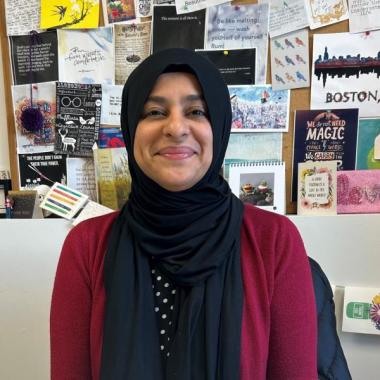
I think that one-dimensional stories are problematic, so I think a good story is a story that is multidimensional, that looks at a person’s lived experience in totality, not just one part of their identity. Like if you were just to look at my experience as a woman, it would be inadequate because one’s lived experience is intersectional. I am a woman who is brown who covers–who is identifiable as Muslim, who is American, who has done a doctorate, who has three kids… so there’s many layers to our lived experiences and I think that’s really important. A lot of the work that I do in my research is around counter-narratives, and I believe that counter-narratives are really important because a lot of times people are like, “If you don’t tell your story, no one will tell your story. Your story won’t be told,” and that’s actually not true. If you don’t tell your story, someone else will. And that’s deeply problematic because when someone else tells your story, it is a hijacked story. It’s telling from their perspective. And in many cases, the stories of minoritized people are whitewashed to fit particular stereotypes or angles, and that’s why I think counter-narratives for minoritized populations are really important and that’s my commitment to the work that I do, is to make sure that those counter-narratives are out there and they’re heard, because we have to tell our own stories, you know, because that’s where the truth lies.
Dr. Noor Ul Sabah Ali was born in Lahore, Pakistan, in 1980. She attended a Catholic school in Lahore up until high school when she decided to move to South Carolina to attend the College of Charleston for her first year of undergraduate studies. She then moved back to Lahore to attend Kinnaird College, where she obtained her bachelor’s degree, as well as a master’s in literature. Since returning to the United States, she has achieved a second master’s in inclusion education from the University of New England as well as a doctorate in education from Northeastern University. Noor and her husband, Adnan Rehman, have three children together and have resided in Shrewsbury, Massachusetts, for the past 11 years. She currently serves as the principal of Al-Hamra Academy in Shrewsbury, Massachusetts, which educates children from infancy to eighth grade. In this interview, Noor discusses her experiences with moving so frequently and how she believes it has impacted her life. Additionally, she emphasizes how important her religious identity is, and the ways it has impacted both her research and her personal life as a whole.
